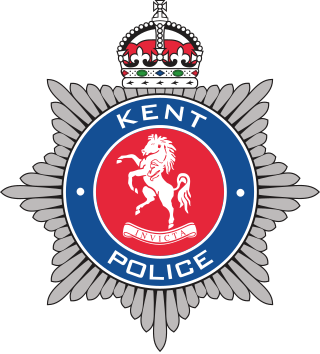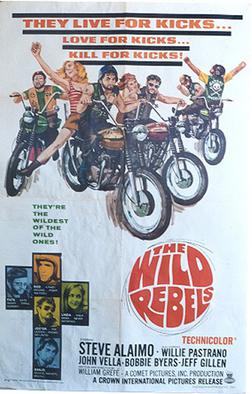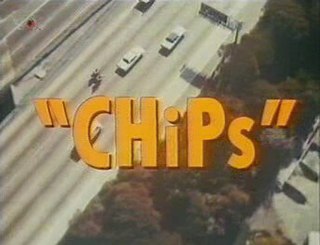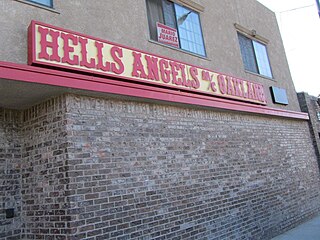Related Research Articles

John Herbert Dillinger was an American gangster during the Great Depression. He commanded the Dillinger Gang, which was accused of robbing twenty-four banks and four police stations. Dillinger was imprisoned several times and escaped twice. He was charged with but not convicted of the murder of an East Chicago, Indiana, police officer, who shot Dillinger in his bullet-proof vest during a shootout; it was the only time Dillinger was charged with homicide.

The Saint Valentine's Day Massacre was the murder of seven members and associates of Chicago's North Side Gang on Saint Valentine's Day 1929. The men were gathered at a Lincoln Park, Chicago, garage on the morning of February 14, 1929. They were lined up against a wall and shot by four unknown assailants, two of whom were disguised as police officers.
"American Skin " is a song written by Bruce Springsteen, inspired by the police shooting death of Amadou Diallo by four NYPD police officers who were subsequently acquitted on all charges.

Kent Police is the territorial police force responsible for policing the 1,433 sq mi (3,710 km2) and approximately 1.8 million inhabitants of Kent, a county in South East England.
Roadog is a motorcycle built by engineer and motorcycle enthusiast Wild Bill Gelbke between 1962 and 1965. A total of two were built. Gelbke, who had attended engineering school in Wisconsin and at University of Southern California, had worked for McDonnell Douglas and also owned two motorcycle shops in Chicago and Hammond, Indiana. He wanted to create a motorcycle that was dependable and was able to cruise at highway speeds comfortably for long periods. Gelbe constructed and welded the frame himself using 4130 chrome-molybdenum tubing, and equipped the machine with a Chevrolet 153 engine and GM powerglide transmission. The shaft drive was constructed from a Chevrolet 1-ton truck differential that was cut in half. The complete bike is 17 feet (520 cm) long and weighs 3,280 pounds (1,490 kg). Its great size and weight make the bike impossible for most people to steer until it is moving at a speed of at least 15 miles per hour (24 km/h), and when at rest it is held up by hydraulic rams that are deployed by the driver.

William Hickman was an American professional stunt driver, stunt coordinator and actor in the U.S. film industry. His film career spanned from the 1950s through to the late 1970s, and included films such as Bullitt, The French Connection and The Seven-Ups.

The Miami-Dade Police Department (MDPD), formerly known as the Dade County Sheriff's Office (1836–1957), Dade County Public Safety Department (1957–1981), and the Metro-Dade Police Department (1981–1997), is a law enforcement agency serving Miami-Dade County. The MDPD has approximately 4,700 employees, making it the largest police department in the southeastern United States and the eighth largest in the country. The department is still often referred by its former name, the Metro-Dade Police or simply Metro.

Wild Rebels is a 1967 film directed by William Grefe and starring Steve Alaimo as Rod Tillman, a stock car driver who goes undercover as the wheelman for a motorcycle gang. The tagline for the film was "They live for kicks... love for kicks... kill for kicks".

The Dillinger Gang was a group of American Depression-era bank robbers led by John Dillinger. The gang gained notoriety for a successful string of bank robberies, using modern tools and tactics, in the Midwestern United States from September 1933 to July 1934. During this crime spree, the gang killed 10 and wounded 7. They managed to pull off three jail breaks which wounded two guards and killed a sheriff.

The Sons of Silence Motorcycle Club (SOSMC) is an international outlaw motorcycle club. Founded in Niwot, Colorado in the United States in 1966, the club has a membership of over 250, with 35 chapters based in 12 U.S. states and in Germany. The Sons of Silence are the sixth-largest motorcycle club in the world, behind the Hells Angels, the Bandidos, the Outlaws, the Pagans and the Mongols.

The Vagos Motorcycle Club, also known as the Green Nation, is a one percenter motorcycle club formed in 1964 in San Bernardino, California. The club's insignia is Loki, the Norse god of mischief, riding a motorcycle. Members typically wear green.

CHiPs is an American crime drama television series created by Rick Rosner and originally aired on NBC from September 15, 1977 to May 1, 1983. It follows the lives of two motorcycle officers of the California Highway Patrol (CHP). The series ran for 139 episodes over six seasons, plus one reunion television film in October 1998.

The Auto Four is a motorcycle designed and built by engineer and motorcycle enthusiast Wild Bill Gelbke during the early 1970s. Approximately seven examples were built. Gelbke, who had attended engineering school in Wisconsin and at University of Southern California, had worked for McDonnell Douglas and also owned two motorcycle shops in Chicago and Hammond, Indiana. After building his Roadog bike during the 1960s, he wanted to create a more practical large motorcycle for touring and police needs that could go into regular production. As with Roadog, Gelbe constructed and welded the frame himself using 4130 chrome-molybdenum tubing. The bikes were equipped with a BMC A-Series engine and General Motors 4-speed automatic transmission. While the frame and body were custom built by Gelbke, electrical parts, such as headlights and taillights, were sourced from General Motors vehicles, for example the taillights from a 1959 Cadillac. Suspension was sourced from Harley Davidson, particularly hydraglide front forks.
Walneck's Classic Cycle Trader was a motorcycle magazine begun in 1978 by motorcycle enthusiasts and swap meet organizers Buzz and Pixie Walneck. The first issues were flyers that listed motorcycle parts for sale; demand for parts and complete motorcycles subsequently resulted in the publication growing into a large, full color magazine that contained over 120 pages during its peak. In 1997 the Walnecks sold the magazine to Trader Publishing, which enabled international distribution. In 2012, it was sold again to Causey Enterprises LLC, who redesigned the magazine extensively, however ceased publishing in 2014. The magazine was established and originally headquartered in Woodridge, Illinois before it was sold to Norfolk, Virginia-based Trader Publishing.
Jeffrey E. Erickson (1958–1992) and Jill Sandra Erickson were an American married criminal couple from Illinois known for committing a series of violent bank robberies.
On 6 October 1996, a rocket-propelled grenade was fired at the headquarters of the Hells Angels Motorcycle Club in Copenhagen, Denmark, killing two people and injuring nineteen others. A prospective member of the rival Bandidos Motorcycle Club was convicted of perpetrating the attack, which occurred during the Nordic Biker War (1994–97).
The Ducati Monza is a 249 cc (15.2 cu in) single cylinder bevel drive SOHC motorcycle produced by the Italian manufacturer Ducati from 1961 to 1968. It was the touring version of Ducati's first 250 cc road bike. Reviews of the Monza praised its speed, road holding, engine smoothness and brakes.

Numerous police and international intelligence agencies classify the Hells Angels Motorcycle Club as a motorcycle gang and contend that members carry out widespread violent crimes, including drug dealing, trafficking in stolen goods, gunrunning, extortion, and prostitution rings. Members of the organization have continuously asserted that they are only a group of motorcycle enthusiasts who have joined to ride motorcycles together, to organize social events such as group road trips, fundraisers, parties, and motorcycle rallies, and that any crimes are the responsibility of the individuals who carried them out and not the club as a whole.
From 1977 to 1984, the Hells Angels and the Outlaws Motorcycle Club fought what came to be known in Canada as the First Biker War. The Angels emerged victorious. As the Outlaws retreated into their Ontario stronghold, the Angels began consolidating their activities and expanding, moving into port cities Halifax, Nova Scotia and Vancouver, British Columbia. The conflict is known in Canada as the "First Biker War", but the first large conflict between bikers in Canada, was the Satan's Choice-Popeyes War which occurred from 1974 to 1976.

Sara-Nicole Morales was shot and killed in the front yard of her mother's house in Orange City, Florida, United States. While returning home from her job at a Volusia County library, she had become embroiled in a road rage incident with a local motorcyclist, during which she had intentionally struck his vehicle with hers, an act witnessed by two nearby motorists. The three notified police and followed her to the house, where she confronted them with her fiancé's pistol. The motorcyclist drew his own gun and shot her five times.
References
- ↑ Walneck, Buzz (April 2008). "Special Feature: Gelbke Auto-Four". Walnecks' Classic Cycle Trader. pp. 45–49. Retrieved 15 April 2016.
- ↑ Mueller, Jim (July 8, 2001). "It ain't nothin' but a Roadog". Chicago Tribune. Retrieved 14 April 2016.
- 1 2 3 4 5 Constantine, Craig (January 2003). "Roadog Revealed". Cycle World. Retrieved 15 April 2016.
- ↑ "Roadog". Museum Archives. Museum of Science and Industry. Archived from the original on February 24, 2004. Retrieved 14 April 2016.